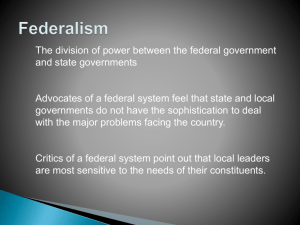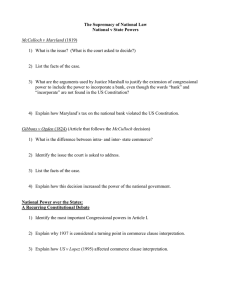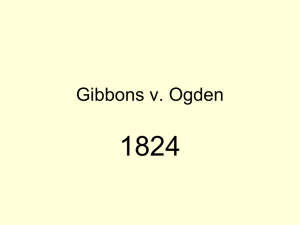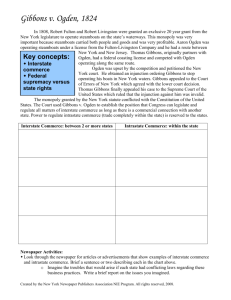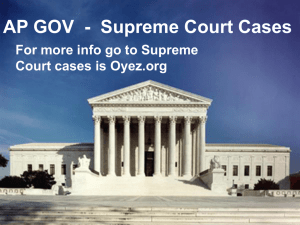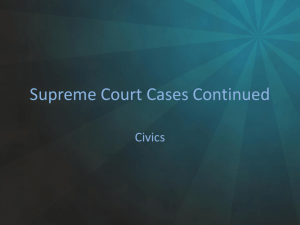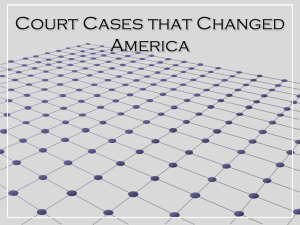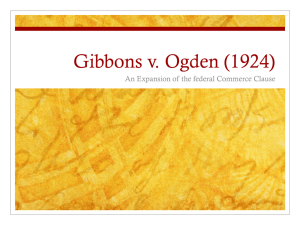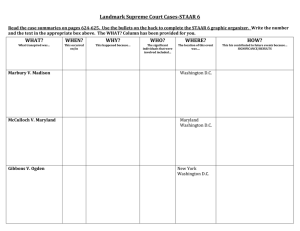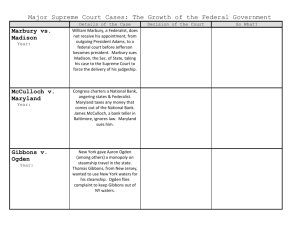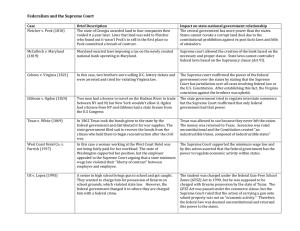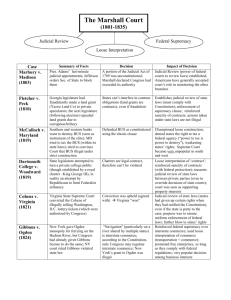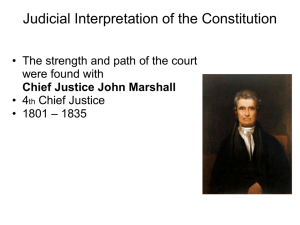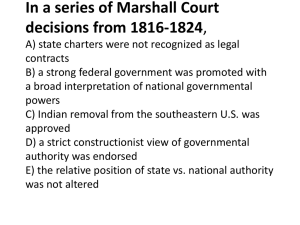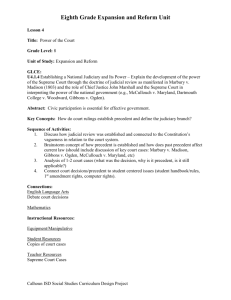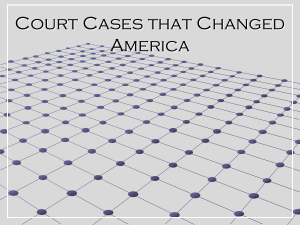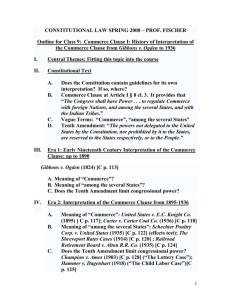National Supremacy
advertisement
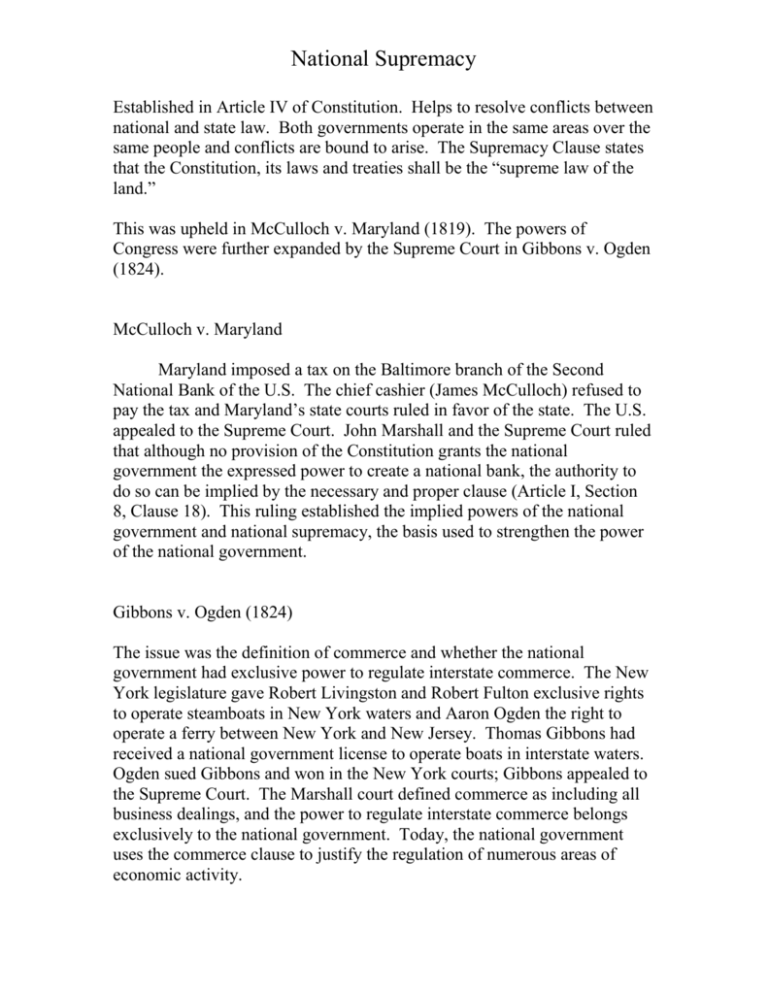
National Supremacy Established in Article IV of Constitution. Helps to resolve conflicts between national and state law. Both governments operate in the same areas over the same people and conflicts are bound to arise. The Supremacy Clause states that the Constitution, its laws and treaties shall be the “supreme law of the land.” This was upheld in McCulloch v. Maryland (1819). The powers of Congress were further expanded by the Supreme Court in Gibbons v. Ogden (1824). McCulloch v. Maryland Maryland imposed a tax on the Baltimore branch of the Second National Bank of the U.S. The chief cashier (James McCulloch) refused to pay the tax and Maryland’s state courts ruled in favor of the state. The U.S. appealed to the Supreme Court. John Marshall and the Supreme Court ruled that although no provision of the Constitution grants the national government the expressed power to create a national bank, the authority to do so can be implied by the necessary and proper clause (Article I, Section 8, Clause 18). This ruling established the implied powers of the national government and national supremacy, the basis used to strengthen the power of the national government. Gibbons v. Ogden (1824) The issue was the definition of commerce and whether the national government had exclusive power to regulate interstate commerce. The New York legislature gave Robert Livingston and Robert Fulton exclusive rights to operate steamboats in New York waters and Aaron Ogden the right to operate a ferry between New York and New Jersey. Thomas Gibbons had received a national government license to operate boats in interstate waters. Ogden sued Gibbons and won in the New York courts; Gibbons appealed to the Supreme Court. The Marshall court defined commerce as including all business dealings, and the power to regulate interstate commerce belongs exclusively to the national government. Today, the national government uses the commerce clause to justify the regulation of numerous areas of economic activity.
